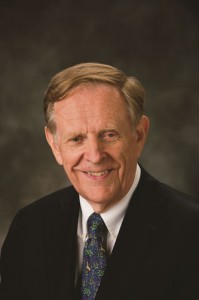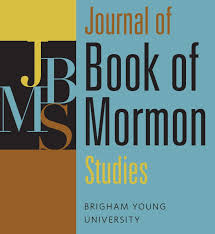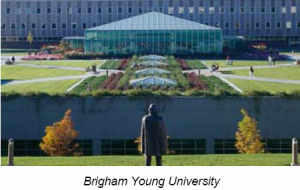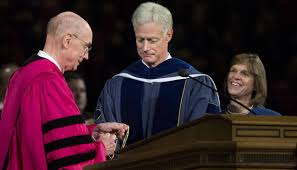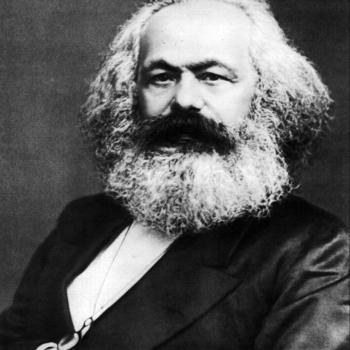I was happy to discover, a few months ago, that Richard Bushman, the most distinguished and accomplished scholar of Mormon history, had taken notice of my article in First Things (March), “Keeping Faith in Provo.” Then I was disappointed that he had not chosen to read my article carefully enough really to engage it.
I argued there that BYU’s aspiration to integrate faith and intellect is essential to the character of the university, even if we never fully attain this goal. However, I observed, the pursuit of this aspiration faces the resistance of an increasingly dominant and exclusive secular and progressive paradigm of knowledge that is deeply ingrained in educational and professional institutions on which BYU depends to carry out its work in the world of higher education.
This mainstream paradigm is built on the modern twin pillars of deterministic “science” and amoral “freedom,” and it deeply conditions the nature of inquiry in all the disciplines of the liberal arts (sciences, humanities, and social sciences). Science and freedom may appear to be logical opposites, but they are two sides of the same spiritual coin, the same denial of the fundamentally moral and spiritual dimension of human nature, our responsibility to a higher power and to purposes not measurable by “scientific” means.
Of course this paradigm is mostly unseen and unexamined – that’s why it’s a paradigm. It works for the most part beneath the surface of our deliberate intentions, shaping us through institutionalized incentives and standards of praise and blame.
For some decades the problematic interface between a secularizing academic mainstream and BYU’s aspiration to a distinctive mission was the site of a manageable compromise, and faculty and students were able to practice a “bilingualism” that held together their religious and intellectual commitments. But this compromise is now, I maintain, under increasing strain, and the language of an allegedly “neutral” but in fact thoroughly progressive and secular is becoming more and more dominant.
With the understandable and even laudable purpose of exercising as much “mainsteam” influence as possible, BYU has attempted to stay neutral with respect to this movement of secularization, but the effectual truth of neutrality proves to be the implicit endorsement and, eventually, the encouragement of the secular movement.
Thus, I maintained in the First Things article, and I still maintain, despite a very public and indeed sincere commitment to a distinctive educational mission (as evident in the recent Inauguration Celebration I discussed in the earlier post), BYU is at grave risk of drifting away from a conception of higher education compatible with its commitment to the mission of the Church of Jesus Christ of Latter-day Saints. I have every hope that our new president is aware of the nature of this challenge. But it will not be easy to counteract the massive inertia embodied in disciplinary assumptions and professional incentives, even with the best of intentions.
For raising these questions, as I did out of love and concern for my alma mater, where I have now taught for twenty-seven years, the distinguished Gouverneur Morris Professor Emeritus of History at Columbia University characterizes me a defining “some of our fellow Saints as benighted aliens beyond the pale,” and calls me to “be governed by the compassion and good will that lies at the heart of faith.”
Well, we can all do more to live up to the duties and traits of character that lie at the heart of our faith. And so I will keep trying. But Prof. Bushman’s call to repentance entirely fails to engage the argument I took the trouble to provide.
Or is Prof. Bushman simply certain that my concerns are wholly unwarranted? If so he knows much more about BYU than I do, and he knows something other than what I see here before my eyes. To be sure, it is difficult to assess the temper and the tendency of BYU as a whole, and certainly there is much that I have neglected to address in my short article. But I have observed BYU from this inside all these years, and I have taken the trouble to consult with many colleagues in many disciplines. (To be sure, my focus and my concern is mainly with the human sciences and the humanities.) But if Professor Bushman has another description of the facts on the ground to propose as an alternative to my own, then he should do so. I would be happy to find my concerns allayed. For example, in his rich experience with young LDS scholars (including his bi-annual “faith and reason” seminars that have included many of the best and brightest of the rising generation), does Prof. Bushman find that young scholars in “Mormon Studies” are in fact successfully managing the tension between the academic paradigms on which their education and livelihood depend and the moral commitments and familial vision of the Restored Gospel?
But to return to my diagnosis of BYU’s challenges… [TO BE CONTINUED — TUESDAY 21 OCTOBER, WATCH THIS SPACE!]

